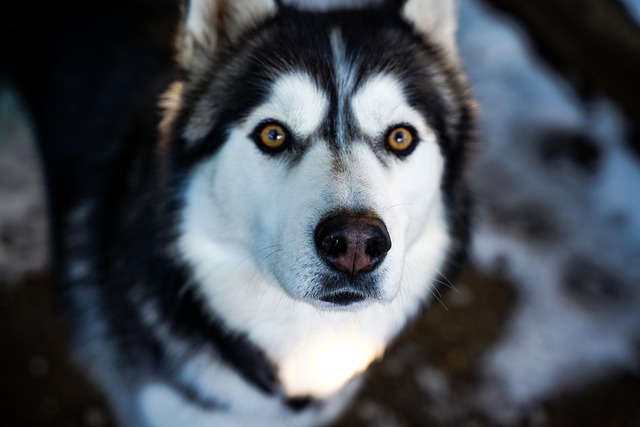
What is glaucoma in a dog?
You might notice your dog squinting more at mealtime or avoiding bright sunlight—these small changes could be early signs of a serious eye condition.
Huskies are famous for those striking eyes—whether they’re icy blue, warm brown, or even one of each. But that same feature that makes them so recognizable also puts them at risk for certain eye issues. Any Husky owner knows those peepers are part of their charm, but ignoring potential problems can lead to discomfort or even vision loss down the line.
One of the most common concerns is hereditary cataracts, a condition where the lens of the eye becomes cloudy. It often shows up in younger dogs, sometimes as early as a few years old, and can progress quickly if left unchecked. You might notice your Husky squinting more or avoiding bright spaces, and in severe cases, the cloudiness is visible to the naked eye. Responsible breeders screen for this, so always ask about health clearances before bringing home a puppy—skipping that step could mean facing expensive treatments or, worse, watching your pup struggle with vision loss.
 Another issue to watch for is corneal dystrophy, which affects the clear outer layer of the eye. It usually starts as a small, hazy spot and can grow over time, making it hard for light to pass through. Huskies with this might rub their eyes more or seem sensitive to wind and dust. Unlike cataracts, it’s not painful in the early stages, but it can lead to irritation if debris gets trapped under the affected area. Your vet can spot it during a routine exam, and while there’s no cure, keeping the eyes lubricated can help manage discomfort.
Another issue to watch for is corneal dystrophy, which affects the clear outer layer of the eye. It usually starts as a small, hazy spot and can grow over time, making it hard for light to pass through. Huskies with this might rub their eyes more or seem sensitive to wind and dust. Unlike cataracts, it’s not painful in the early stages, but it can lead to irritation if debris gets trapped under the affected area. Your vet can spot it during a routine exam, and while there’s no cure, keeping the eyes lubricated can help manage discomfort.
Dry eye, or keratoconjunctivitis sicca, is also more common in Huskies than in many other breeds. Their tear glands might not produce enough moisture, leaving the eyes irritated, red, or crusted over. You’ll notice discharge that looks thick or yellowish, and your pup might blink excessively or keep their eyes half-closed. If left untreated, it can damage the cornea and affect vision. The good news is that daily eye drops or ointments prescribed by a vet can usually keep it in check—just don’t skip those doses, even if your Husky acts like they’re fine.
Uveitis, an inflammation of the eye’s middle layer, is another trouble spot. It can be caused by infections, injuries, or even autoimmune issues, and it comes on fast—your Husky’s eye might look red, swollen, or cloudy overnight. They might avoid light or hold the eye shut, and if not treated quickly, it can lead to glaucoma or scarring. Catching it early is key, so never brush off sudden changes in how your Husky’s eyes look or act.
Keeping those iconic Husky eyes healthy means staying alert to small changes—cloudiness, redness, excessive tearing, or squinting. Regular vet checkups, especially as they get older, can catch issues before they worsen. After all, those eyes aren’t just beautiful—they’re how your pup sees the world, from the first snowfall to your morning greetings. A little attention now can help keep them bright for years to come.

You might notice your dog squinting more at mealtime or avoiding bright sunlight—these small changes could be early signs of a serious eye condition.

Let’s set the scene: It’s a sweltering Phoenix afternoon—105°F outside—and you rushed your 2-year-old Lab mix, Cooper, on a quick walk to “get it over with.”

Let’s get real: You’re in your Miami apartment, watching your 3-year-old Corgi, Loki, struggle to climb the stairs to your second-floor unit.

Many dog owners brush off occasional scratching as just “dog behavior,” but persistent itching often signals something more—like a food allergy.

You might first notice your dog scratching more than usual—chewing at their paws until the fur looks thin, or rubbing their face against the couch nonstop.

Let’s be real: You’re standing in your Chicago apartment, watching your 3-year-old Beagle, Max, huff and puff just to climb onto the couch.